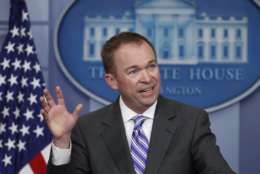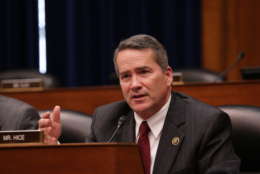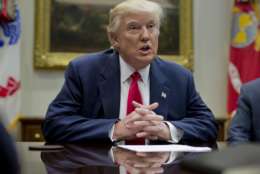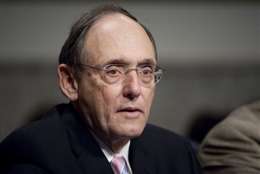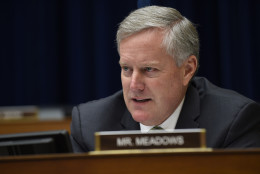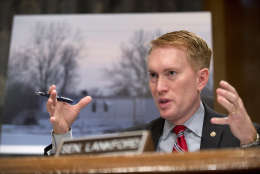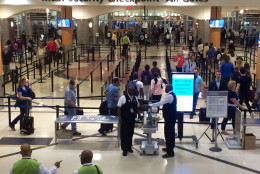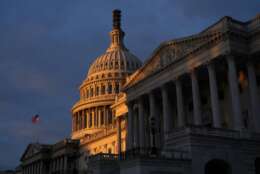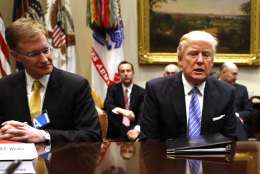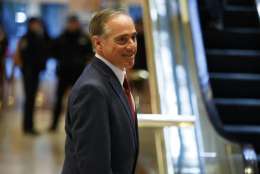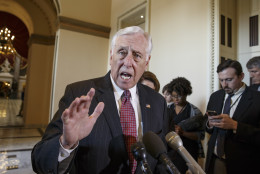American Federation of Government Employees
-
President Donald Trump offered a first look at his upcoming management agenda in the 2018 budget blueprint. The agenda will focus on eliminating agency reporting requirements on IT, acquisition, human capital and real property and letting "managers manage." It also suggests the budget and reorganization executive order initiatives will drive future agency workforce cuts.
March 16, 2017 -
Office of Management and Budget Director Mick Mulvaney said proposed budget reductions for agencies such as EPA or HUD are based on the administration’s goals and priorities, and leaders at those agencies will be able to decide how best to address smaller budgets.
March 16, 2017 -
Two lawmakers have introduced legislation that would leverage pensions and benefits in an effort to reign in use of official time and has resulted in hours of debate and a deeper divide over the subject of unions.
March 09, 2017 -
Proposed budget cuts to civilian agencies in fiscal 2018 may mean that the Social Security Administration will have to issue furlough notices to its employees. A union that represents SSA field operations and phone service center employees said the agency's workforce could see five days of furloughs for every 1 percent cut to the Social Security administration budget.
March 07, 2017 -
Significant cuts to EPA's state programs and workforce have sent agency executives and employees' unions scrambling to get a better understanding of what direction the Trump administration wants to take the department.
March 06, 2017 -
Some advocates of the House Veterans Affairs Committee's new employee accountability bill say it's different enough from previous attempts to tackle this issue and should assuage past concerns. But others fear the legislation revives familiar worries.
March 03, 2017 -
A recent Government Accountability Office report on the Veterans Affairs Department and its employees' use of official time is renewing a debate among lawmakers: Does official time have a place within agency operations, and how much time is too much?
February 16, 2017 -
The Senate Homeland Security and Governmental Affairs' federal workforce subcommittee said it's on a fact-finding mission this year. Subcommittee Chairman James Lankford (R-Okla.) said he wants to hear from federal managers about the existing authorities and processes that make their jobs more difficult.
February 09, 2017 -
Congress called in outside experts to find out just what can improve the agency, so the incoming administrator will have some guidance in improving the agency.
February 03, 2017 -
J. David Cox, national president of AFGE, joins host Derrick Dortch on this week's Fed Access to discuss federal workers will be affected by pay and hiring freezes imposed by President Donald Trump. February 3, 2017
January 27, 2017 -
President Donald Trump signed a memorandum Monday implementing a federal hiring freeze. It prevents agencies from making most new hires and prevents them from filling vacant positions. It does not apply to military or national security positions.
January 23, 2017 -
Veterans service organizations and the American Federation of Government Employees, which represents roughly 230,000 employees at the Veterans Affairs Department, say the President-elect's nominee to lead the agency is a pleasant surprise. Dr. David Shulkin, the current VA undersecretary for health, should give the agency some continuity during the transition, they said.
January 12, 2017 -
The House of Representatives voted Tuesday on its rules package for the 115th Congress, which reinstates a little-known provision from previous congressional sessions. The "Holman Rule" lets lawmakers offer amendments to appropriations packages on the House floor, which could cut an agency's spending, the number of its employees or a person's salary.
January 03, 2017 -
The 2017 defense authorization bill increases the amount DoD workers get for leaving their jobs by $15,000. The bill, signed into law by President Obama on Friday, provides up to $40,000 in retirement incentives for eligible civilian employees.
December 26, 2016 -
Why would federal workers boo a president for giving them a 9 percent pay raise, then cheer another one for a 2.1 percent increase? Senior Correspondent Mike Causey says timing is everything.
December 12, 2016


